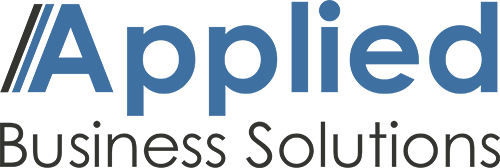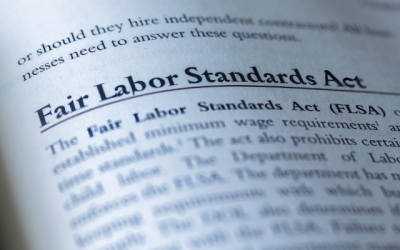Employee classification refers to the process of categorizing workers as either employees or independent contractors based on their relationship with the employer and the nature of their work. It involves determining whether an individual should be treated as an employee, entitled to certain benefits and protections, or as an independent contractor, who operates as a separate business entity and assumes more responsibility for their work. Proper employee classification is crucial for complying with labor laws, tax regulations, and other legal obligations.
Employee misclassification poses significant risks for businesses, including legal consequences, financial liabilities, and reputational damage. To understand the importance of proper classification, let’s explore real-life stories that shed light on the dangers of misclassification. By examining these cases, we can grasp the implications and take proactive measures to ensure compliance. At Applied Business Solutions, we provide comprehensive compliance support to help businesses navigate the complexities of employee classification.
CASE 1: Instacart Pays Over $46 Million in Restitution to Misclassified Workers in California.
One prime example of misclassification’s perils involves Instacart, a grocery tech company. The San Diego City Attorney’s Office sued Instacart in 2019, alleging that the company had misclassified its 300,000 delivery workers as independent contractors. As a result, these workers were denied employee rights such as overtime and paid breaks. To rectify the situation, Instacart agreed to pay $46.5 million in restitution. This case highlights the financial risks associated with misclassification and underscores the importance of proper employee classification.
Legal and Financial Consequences
Misclassifying employees can lead to costly legal battles, including lawsuits, penalties, and fines. The financial burden can cripple businesses, as evidenced by the substantial restitution settlement reached by Instacart. Avoiding misclassification is not only ethically responsible but also financially prudent.
CASE 2: Nike Could Face Fines of More Than $530 Million for Worker Misclassification.
Another high-profile case involves Nike, a global brand. A 2022 review revealed that Nike faced a potential misclassification risk exceeding $530 million across its independent contractors in the US, UK, Netherlands, and Belgium. The absence of a comprehensive company-wide process to determine proper classification left Nike exposed to significant financial liabilities and potential class action lawsuits. This case serves as a reminder that even large corporations can face dire consequences when misclassification issues are not addressed proactively.
Employee Rights and Benefits
Misclassified workers are often denied essential rights and benefits, including overtime pay, healthcare coverage, and retirement benefits. Denying employees these entitlements not only violates labor laws but also contributes to a dissatisfied workforce, increased turnover, and potential damage to a company’s reputation. Prioritizing proper classification ensures that employees receive the benefits and protections they are entitled to.
CASE 3: Therapy Provider Cited Over $9 Million for Misclassifying 1,280 Employees.
The case of Feld Care Therapy, Inc., a therapy provider, illustrates the risks of misclassification in specialized industries. The California Labor Commissioner’s Office cited the company for willfully misclassifying 1,280 speech, physical, and occupational therapists as independent contractors. As a result, the company was held liable for damages amounting to approximately $9 million. This case emphasizes the importance of providing complete wage statements and the potential consequences of misclassification, even in niche sectors.
Compliance and Audit Risks
Government agencies, such as the IRS and state labor departments, actively monitor misclassification practices. Non-compliant businesses are at risk of audits, which can disrupt operations, result in back taxes, and trigger further investigations. Ensuring proper classification protects businesses from compliance-related risks and safeguards their reputation.
Conclusion: The real-life stories of Instacart, Nike, and Feld Care Therapy highlight the severe dangers associated with employee misclassification. These cases demonstrate the legal, financial, and reputational risks that businesses face when they fail to prioritize proper classification. To avoid these pitfalls, businesses must seek professional guidance, implement comprehensive compliance measures, and partner with experts like Applied Business Solutions.
At Applied Business Solutions, we understand the complexities of employee classification and the importance of compliance. Our team of experts can assist you in navigating the intricate landscape of classification, ensuring compliance with applicable laws and regulations. Protect your business and your employees by partnering with us. Contact us today for a tailored compliance solution that suits your business’s unique needs.
Email: info@appliedpeo.com
Phone: 855-792-2808





